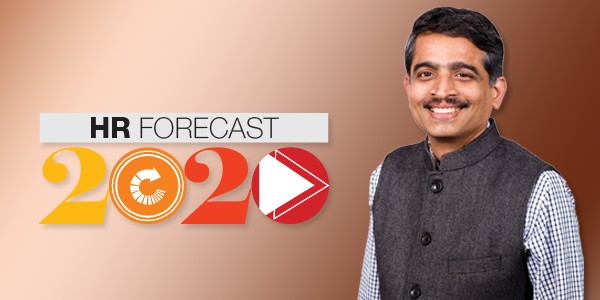Technology, data, employee experience: What’s high on agenda
Yes, all three and I’ll add a fourth one – jobs. This year, because of economic slowdown, we have seen a downturn — a stress in the system – across all industries, be it retail, BFSI, QSR, hospitality, telecom or any other. I think, next year, HR’s main focus will be employee productivity and creating jobs, otherwise several people will be on the streets. The brunt of increasing costs and reduced consumption in the economy will make many businesses unviable. To stay afloat, one has no option but to make one’s business competitive by cutting costs.
Thus, the broader view of the economy is not very optimistic for the year 2020. We are yet far from the worries that robots will replace humans or skill-gaps will keep jobs at bay. The point is that, there will be major job cuts across sectors, and there will be a thrust to improve productivity.
The biggest challenge for HR in your sector
The biggest challenge is improving the productivity of the workforce. I’d like each employee to improve her/his performance and be able to work more. We have to reduce costs and that can be done only by reducing the number of heads in the business. For us, the input cost— a large chunk of which is the real estate— cannot be reduced. Therefore, other than improving employee productivity, there is no significant means to make business competitive.
The first level of productivity will go up by reducing the number of employees at any store. For instance, the work that was previously done by 700–800 employees will be done by 500 or so. Then comes upskilling. Thus, the key focus for HR will be right-sizing and skilling to improve employee productivity.
Internal equality and internal equity
I am not a supporter of the ‘equity’ theory. It is applicable only to the gender divide. Beyond that, equity does not apply. For instance, if I hire someone from IIT, for a specialised high-end work that requires niche expertise, I will have to pay that individual a salary much higher than another engineer, who is hired to work at the basic operational level. There cannot be internal equity as pay-scale follows skills and knowledge.
Rather, in 2020, the premium paid for rare skills will go up. Moreover, the demand and supply play a role in devising the payscale. Anyone in possession of specialised expertise in their domain will get paid higher. Equity, as an agenda, will gain acceleration only where it is discriminated on the basis of gender.
Digital recognition and virtual medals
I think this trend will pick up, in order to reduce cost of operation involved in physically awarding a large workforce. Already many in the industry are giving badges to recognise employees for their work. Badging helps to motivate employees to initiate learning and development courses to advance careers. In addition, it pushes them to think and act out of the box. In many organisations, employees list their badges and certificates in their official signature. All this clearly shows that digital recognition is on the rise and will become a way of life.
Data deluge: More power to HR
Data will definitely provide more power to HR. We will become far more analytical, and learn to identify trends, patterns and connections between dots. I think it is a good marriage of both—data and human gut. Increasingly, we will have to learn to use data, which is a skill set that most HR professionals lack. The future requires this profession to step up and go beyond leveraging data and analytics, to speaking the same language with the people in the organisation.



